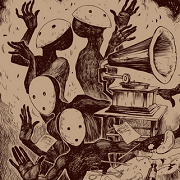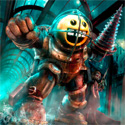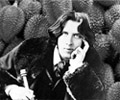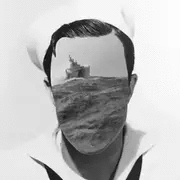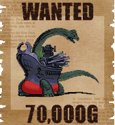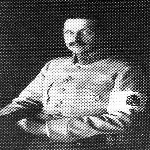|
Fate Accomplice posted:After reading “The Wandering Earth” and being thoroughly entertained by both movies and massively disappointed by sci-fi’s Ascension, I want to read books taking place on colony/generational ships. Book of the Long Sun
|
|
|
|

|
| # ? Jun 3, 2024 00:01 |
|
Fate Accomplice posted:After reading “The Wandering Earth” and being thoroughly entertained by both movies and massively disappointed by sci-fi’s Ascension, I want to read books taking place on colony/generational ships. there was a pretty good, though dated one by Harry Harrison called captive universe about an aztec tribe in a blocked off valley - i'm not going to spoiler this because it was written in 1969 and the fact i'm directly answering kind of gives it away - and it's turns out to be Eros, bored out and sent from earth.
|
|
|
|
thanks! that's enough for me to get started
|
|
|
|
Paradises Lost by Ursula Le Guin. It's collected in The Found and the Lost. It's the last novella in the collection, and it gives a great finish to some amazing stories.
|
|
|
|
Fate Accomplice posted:thanks! that's enough for me to get started one more! John Barnes Century next door series feature earth where memetic brain viruses take over humans, the wars that this causes and the groups of humans who've escaped. Varies in tone between the memoirs of a truly horrible mass murderer and uses time dilation to travel time (this is Kaleidoscope Century and is pretty confronting compared to the others) , a school diary of a teenage girl on what it later becomes clear is a generation ship escaping the viral wars, the life of a teenage girl and her dad who prospect on mars free of the viral contagions and finally the life of a bounty hunter on earth, after the wars are over, who hunts down survivors who aren't infected with the winning viral brain software, called onetrue. https://www.fantasticfiction.com/b/john-barnes/century-next-door/
|
|
|
|
Fate Accomplice posted:After reading “The Wandering Earth” and being thoroughly entertained by both movies and massively disappointed by sci-fi’s Ascension, I want to read books taking place on colony/generational ships. I don't know if you want to start there, but Richard Paul Russo's Ship of Fools takes place at least mostly on a generation ship.
|
|
|
|
Fate Accomplice posted:After reading “The Wandering Earth” and being thoroughly entertained by both movies and massively disappointed by sci-fi’s Ascension, I want to read books taking place on colony/generational ships. Kim Stanley Robinson's Aurora
|
|
|
|
Macdeo Lurjtux posted:I just finished The Star are Legion myself and I feel mostly the same way. Story is just a Dying Earth pastiche but the setting is intriguing. So I interpreted that as commentary on how our society today has a thing about controlling women's reproductive rights because there's plenty of textual examples where Zan thinks the whole thing is super messed up, exhibit A being Arankadash giving birth to a literal cog for the Katazyrna and also Zan literally rewrites the pattern of the Mokshi to put an end to it. We don't get to see how that plays out but the very last chapter ends on a pretty uplifting note given what's come before.
|
|
|
|
PeterWeller posted:You should read this short story excerpted from Jennifer Egan's The Candy House: https://www.newyorker.com/magazine/2012/06/04/black-box Jennifer Egan has a lot of fun playing with form. If you're wondering about the sometimes staccato, sometimes stilted phrasing, Black Box was originally released as a twitter thread, over 10 nights. Back when tweets were only 140 characters. In terms of loving about with the viewpoint, it's not sci-fi but I also enjoyed Then We Came to an End which was written in first person plural about a turn of the 21st century ad agency. And, of course, epistolary novels are nothing new but pretty rare these days and play with form since they're letters to and from the characters. This is How You Lose the Time War is one of my favorites of any genre because it uses the format so well.
|
|
|
|
Ravenfood posted:Kim Stanley Robinson's Aurora Sadly, this is also where you end with generation-ship stories. Ken McLeod's Learning the World is pretty decent. It's a first-contact story, jumping between the alien planet and the approaching generation-ship.
|
|
|
|
Macdeo Lurjtux posted:I just finished The Star are Legion myself and I feel mostly the same way. Story is just a Dying Earth pastiche but the setting is intriguing. Pretty sure that's not what's in the text. The witches say that mixing of different worlds leads to problems, but the way worlds have been regenerated was by adding new genetic material. I don't think we ever learn what's causing the rot, I haven't read the short story that supposedly exists, but we know that the witches were suffering a slow decay in memories and sanity and that they somehow are related to the control system, so I'd guess it's that.
|
|
|
|
i finished KJ Parker's the two of swords trilogy and man. he's so good at this particular kind of book. i prefer 16 Ways etc more, but man this trilogy is it's own kind of special. Absolutely nobody in this entire story has the slightest bit of agency, it's an endless series of being outmanoeuvred and overcome by events. But it's great despite that. And it even has a happy ending, sort of.
|
|
|
|
https://www.kickstarter.com/projects/ffsmedia/alice-luck-3-space-adventure-comedy-novels Space comedy novels by the lady who wrote the Jessica Christ series. Kickstarter only has like 2 days left on it. I just discovered it so I figured someone better might wanna hop on as well.
|
|
|
|
I read Pandora's Star when it came out years ago but I don't really remember anything about it besides the wormholes, I'm re-reading it now and it really grabbed me. He does a very good job of creating a realized and lived-in future that makes sense given the parameters he's set up, I love the sub-themes about how longevity would change the way we live and heighten the class differences we have now. The idea that humanity developed non-starship based FTL first and the ways that it changed that fictional compared to the starship-first universes we're more used to but it does raise a question in my mind: can it be space opera with only a couple of starships around? A more general question: how good are you at visualizing aliens based on literary descriptions? (I'm terrible at it) zoux fucked around with this message at 16:35 on Feb 16, 2023 |
|
|
|
people visualise?
|
|
|
|
zoux posted:A more general question: how good are you at visualizing aliens based on literary descriptions? (I'm terrible at it) It really depends on the given description, but if it's detailed enough I think I tend to have a pretty full mental picture. However, it can sometimes get overwritten by seeing stuff like what's on the cover art (accurate or not) or if there's a movie adaptation, that sort of thing.
|
|
|
|
habeasdorkus posted:Jennifer Egan has a lot of fun playing with form. If you're wondering about the sometimes staccato, sometimes stilted phrasing, Black Box was originally released as a twitter thread, over 10 nights. Back when tweets were only 140 characters. Yes, that's a good way to put it. I would suggest checking out The Candy House in its entirety if you enjoy "Back Box," though you might want to read A Visit from the Goon Squad first. The Candy House is a sequel of sorts, so reading A Visit from the Goon Squad will provide context for a lot of the characters. Both are what I would consider SF adjacent, but some of our regulars may not like them for the same reasons they normally don't like "literary" authors writing genre works. I can second the recommendation for This is How You Lose the Time War.
|
|
|
|
New York 2140 by Kim Stanley Robinson - $2.99 https://www.amazon.com/dp/B01KT7YTO6/
|
|
|
StrixNebulosa posted:You think more books should be written in tbe second person pov. It’s interesting, and forces you to relate to characters in new ways. Charles Stross has pulled it off, for example. You have also decided to try writing posts in the style, just to annoy goons. You could also try the current BoTM! https://forums.somethingawful.com/showthread.php?threadid=4013975&pagenumber=5#post529483049
|
|
|
|
|
I'm doing some research for an upcoming article and maybe the erudition of this thread can help me out. I'm trying to answer the question: which was the first example of a fictional world that's entirely separate from the real one? That is, not in the past or the future, not in outer space or a distant land, and not accessible through a portal or multiversal spaceship or any other method of travel. I have a few candidates in mind, but I'm curious to hear what others suggest. Ultimately I'm not just interested in which one is "the winner", but the intellectual history of the concept as a whole.
|
|
|
|
Sailor Viy posted:I'm doing some research for an upcoming article and maybe the erudition of this thread can help me out. Plato's allegory about the cave from his manifesto the republic? Read NK Jemisin's The World We Make, and it really was a downgrade from her earlier The City We Became for me.
|
|
|
|
Sailor Viy posted:I'm doing some research for an upcoming article and maybe the erudition of this thread can help me out. I know there's probably earlier stories but the only one I can think of right now is Tolkien's Middle Earth.
|
|
|
|
Flatland leapt to mind but I'm positive there's going to be earlier. You need to specify, too - what makes the other world completely separate and fictional as opposed to 'our world but with magic in it' like Shakespeare or Aeschylus wrote about?
|
|
|
|
Tolkien's works are set in our world's past.
|
|
|
|
Everyone posted:I know there's probably earlier stories but the only one I can think of right now is Tolkien's Middle Earth. Not even-- Middle-Earth is supposed to be a mythic past of our own Earth. Presumably Valinor is still floating out there somewhere near the moon.
|
|
|
|
Sailor Viy posted:I'm doing some research for an upcoming article and maybe the erudition of this thread can help me out. Hard to say, because if you discount any connection to the world, even allegorical works like Thomas Moore’s Utopia use the framing artifice of being transported to another world in a dream or some such. It’s like most philosophers felt the need to ground their story in reality to say, “this is possible” rather than portraying an impossible fantasy. Until we had fully mapped the Earth, it was easy to frame a fantastical story as a journey beyond known borders, from Gilgamesh’s journey to Gulliver’s Travels. As people have already mentioned, even Tolkien ties his story to our mythological past. Even Edgar Rice Burroughs’ Conan was the Roman era with the serial numbers filed off, not to mention Barsoom being Mars and the teleportation aspect there. And Gomenghast was also supposedly a tiny isolated kingdom on Earth. So it’s entirely possible the concept of a secondary world totally unconnected to this one is a 20th century invention. Edit: Lord Dunsany maybe? Stuporstar fucked around with this message at 02:49 on Feb 17, 2023 |
|
|
|
Some light googling suggests The Blazing World by Margaret Cavendish (1666) or Phantasmion by Sara Coleridge (1837).
|
|
|
|
Sailor Viy posted:I'm doing some research for an upcoming article and maybe the erudition of this thread can help me out. Plato's realm of forms, or perhaps the world we live in depending on your level of platonism.
|
|
|
|
Gaius Marius posted:Plato's realm of forms, or perhaps the world we live in depending on your level of platonism. In either case the two are connected, so it's not what they're asking for
|
|
|
|
Stuporstar posted:Hard to say, because if you discount any connection to the world, even allegorical works like Thomas Moore’s Utopia use the framing artifice of being transported to another world in a dream or some such. It’s like most philosophers felt the need to ground their story in reality to say, “this is possible” rather than portraying an impossible fantasy. Yes, this is what I find so interesting. Just about every proto-fantasy or proto-sci-fi from the 19th century and earlier comes with some kind of framing device that links it to the real world. And it gets slighter as time goes on until the imaginary "detaches" from reality. I think it's possible that people of that era would have found the concept of a completely disconnected paracosm quite weird and hard to wrap their heads around. HopperUK posted:Flatland leapt to mind but I'm positive there's going to be earlier. You need to specify, too - what makes the other world completely separate and fictional as opposed to 'our world but with magic in it' like Shakespeare or Aeschylus wrote about? Flatland is possibly "the winner" although it's more in the tradition of philosophical thought experiments rather than the mythopoeic urge that runs through Dunsany -> Tolkien -> modern fantasy. "Our world with magic in it" still counts as "our world" in this context, I think. Especially since Shakespeare and others tended to put their magic somewhere far away in time and space--maybe Prospero's isle really does exist, how would you know for sure?
|
|
|
|
Quick, someone mention Pantheistic Multi-Person Solipsism! Speaking of that, after having read The Pursuit Of The Pankera a couple of times, I think I like it more than The Number Of The Beast.
|
|
|
|
|
There could also pretty easily be something in Chinese stories and myths, idk
|
|
|
|
|
Voynich manuscript? It doesn't even connect to our language
|
|
|
|
^^ As far as I’ve read, which is “some,” Chinese myths and stories are also grounded in our world like most myth and legendary traditions.Sailor Viy posted:Yes, this is what I find so interesting. Just about every proto-fantasy or proto-sci-fi from the 19th century and earlier comes with some kind of framing device that links it to the real world. And it gets slighter as time goes on until the imaginary "detaches" from reality. I think it's possible that people of that era would have found the concept of a completely disconnected paracosm quite weird and hard to wrap their heads around. I think even Flatland was framed as the author personally, a 3d being from our world, visiting Flatland, which also rules it out.
|
|
|
|
I think the platonic ideal realm might work, if I'm remembering it correctly which I'm probably not. While there'd be a "connection" in that the concepts are present in both our world and in the platonic realm, they don't directly connect. It's more akin to a sci-fi story set in a different universe but with human characters is linked to our world through the concepts of human beings, even if there's no direct point of contact. I feel like the answer to this is going to be a story from an early sci-fi magazine, and the specifics will depend on whether we need it to be clear that it's really a different universe or if one that's silent on whether it involves our world is enough.
|
|
|
|
Stuporstar posted:^^ As far as I’ve read, which is “some,” Chinese myths and stories are also grounded in our world like most myth and legendary traditions. IIRC, the narrator of Flatland is a Flatland native, but he knows that "Spaceland" exists and makes references to stuff from our world, so I wouldn't say it fits the requirements.
|
|
|
|
Bear Sleuth posted:Some light googling suggests The Blazing World by Margaret Cavendish (1666) or Phantasmion by Sara Coleridge (1837). Probably Phantasmion because the main character in The Blazing World is from Earth and apparently the world in question can be reached via the North Pole on Earth. That said, I'm now probably going to need to read both of these works now that my pig-ignorant American rear end knows that they exist. Yes, pig-ignorant. Not only is The Blazing World one of the first science fiction/fantasy novels, it's apparently one of the first actual novels in English. Was I taught about it in high school or even college? I was not.
|
|
|
|
Stuporstar posted:Even Edgar Rice Burroughs’ Conan was the Roman era with the serial numbers filed off, not to mention Barsoom being Mars and the teleportation aspect there. And Gomenghast was also supposedly a tiny isolated kingdom on Earth. Surely you mean Robert E. Howard when you refer to Conan, right? Or is there an ERB series set in a world named Conan? I'd note that like Tolkien's Middle Earth, Howard's Hyborian Age is presented as deep history of our own world--"before the Oceans drank Atlantis."
|
|
|
|
Presumably they meant Carter
|
|
|
|

|
| # ? Jun 3, 2024 00:01 |
|
Invisible Planets: Contemporary Chinese Science Fiction in Translation by Ken Liu - $2.99 https://www.amazon.com/dp/B01E3PFTXK/ Fool Moon (Dresden Files #2) by Jim Butcher - $1.99 https://www.amazon.com/dp/B001BPYD2O/
|
|
|



















